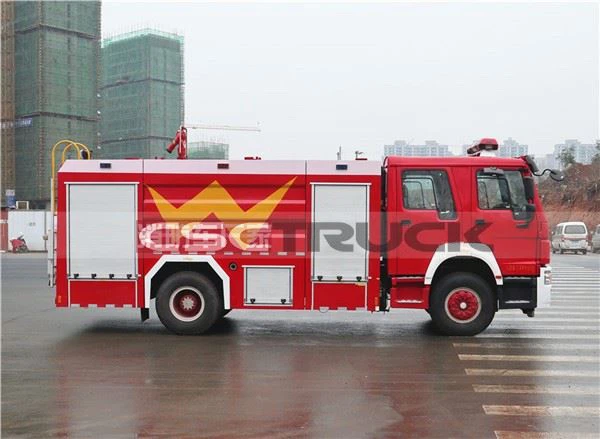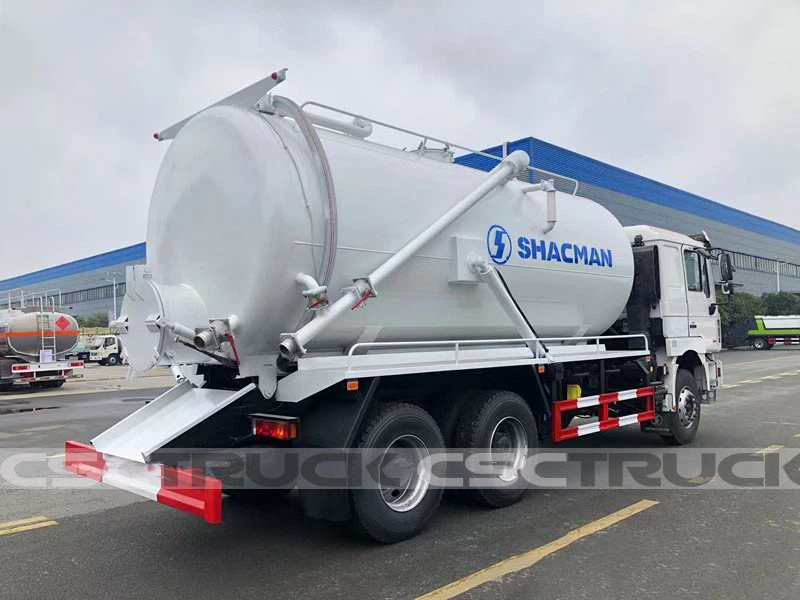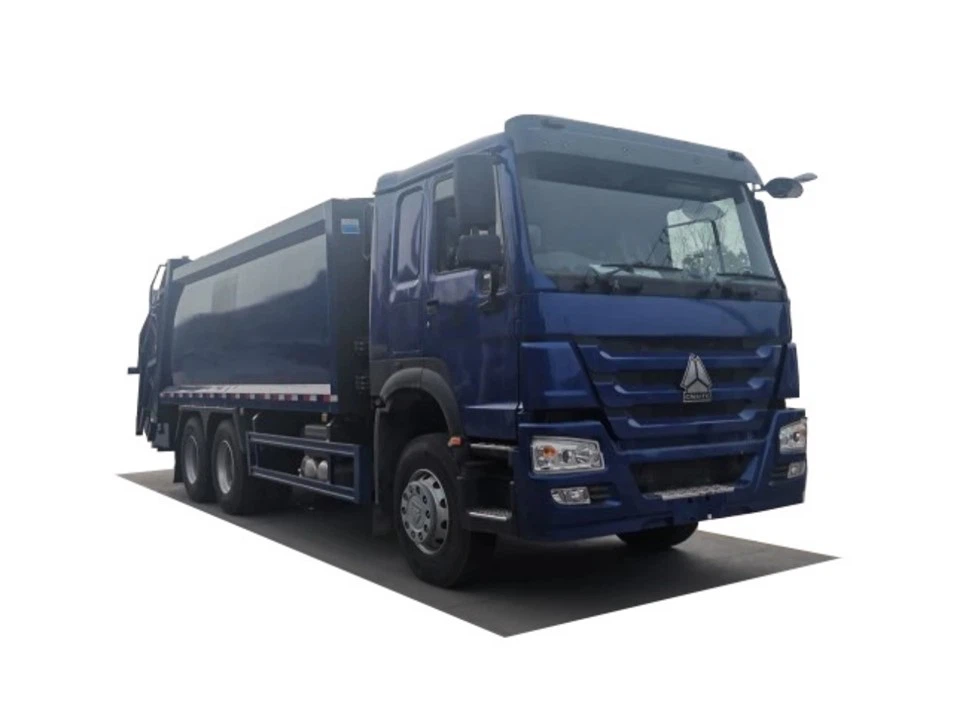Everything You Need to Know About Dumpster Hauling Trucks

Introduction
In today’s world, waste management has become an essential part of keeping our environments clean and safe. Between residential cleanouts, commercial construction, and seasonal yard work, the demand for effective waste removal solutions continues to grow. One crucial piece of equipment that has become synonymous with effective waste management is the dumpster hauling truck. In this article, we’ll explore the different aspects of dumpster hauling trucks, their significance in waste management, and everything you need to consider when investing in one.
What is a Dumpster Hauling Truck?
A dumpster hauling truck is a specialized vehicle used to transport waste containers, commonly known as dumpsters. These trucks are designed to handle the weight and size of filled dumpsters, enabling efficient collection and disposal of waste from various sites. They are used in both residential and commercial settings, making them an integral part of the waste management industry.
Types of Dumpster Hauling Trucks
Dumpster hauling trucks come in various types, each suited for different hauling needs. Below, we take a closer look at the most common types.
1. Roll-Off Trucks
Roll-off trucks feature a specialized container that can be easily loaded and unloaded. These trucks are ideal for construction sites and large clean-up projects where large volumes of waste are generated.
Characteristics of Roll-Off Trucks
- Capable of carrying multiple dumpster sizes (10 to 40 yards).
- Equipped with hydraulic systems for easy loading and unloading.
- Perfect for construction debris, yard waste, and large-scale cleanouts.

2. Front-Loader Trucks
Front-loader trucks are primarily used in commercial waste services. These trucks utilize two fork-like arms at the front to lift and dump waste containers into the truck.
Characteristics of Front-Loader Trucks
- Suitable for frequent collection of commercial waste.
- Can handle multiple dumpsters at a time, enhancing efficiency.
- Typically used for solid waste management in industrial sectors.
3. Side-Loader Trucks
Side-loader trucks facilitate the easy access of dumpsters from the side. They are excellent for residential areas where space may be limited.
Characteristics of Side-Loader Trucks
- Ideal for narrow streets and crowded neighborhoods.
- Automated systems make dumping efficient and easy to operate.
- Commonly used for both residential and small commercial waste collections.
Choosing the Right Dumpster Hauling Truck
Selecting the right dumpster hauling truck depends mainly on your operational requirements and budget. Here are some factors to consider:
1. Load Capacity
Evaluate how much weight and volume of waste you typically handle. Make sure to choose a truck that can manage your maximum expected load.
2. Type of Waste
Different types of waste require different handling. For example, construction debris may need a roll-off truck, while regular trash collection may require a front-loader truck.
3. Frequency of Use
If you plan to use the truck frequently, consider investing in a more robust model designed for heavy-duty use.
4. Budget
Cost is a significant factor. Analyze your budget and choose a dumpster hauling truck that offers the best ROI based on your operations.
Benefits of Using Dumpster Hauling Trucks
Using dumpster hauling trucks offers several benefits for waste management, particularly for businesses and contractors:
1. Efficiency
These trucks allow for quick and efficient waste collection, reducing the time and labor involved in removal tasks.
2. Cost-Effectiveness
Investing in a dumpster hauling truck can save money in the long run by streamlining waste removal operations.
3. Environmental Responsibility
Utilizing proper waste management equipment helps reduce landfill waste and promotes recycling efforts.
4. Versatility
Dumpster hauling trucks can handle a wide range of waste types, making them versatile tools for various industries.

Maintenance of Dumpster Hauling Trucks
Regular maintenance is crucial to ensure the longevity and efficient performance of dumpster hauling trucks. Here are some maintenance tips:
1. Routine Inspections
Schedule regular inspections to check for mechanical issues, wear and tear, and proper functioning of hydraulic systems.
2. Tire Maintenance
Ensure tires are adequately inflated and replace them when necessary. Proper tire maintenance increases fuel efficiency and safety.
3. Cleaning
Regularly clean the truck to prevent rust and corrosion. A clean truck also maintains a professional appearance for your business.
4. Oil Changes
Follow the manufacturer’s recommendation for oil change intervals. Regular oil changes help maintain engine performance.
Practical Examples of Dumpster Hauling Truck Usage
Dumpster hauling trucks are utilized in various sectors. Here are some practical examples:
1. Construction Projects
During large construction projects, roll-off trucks can efficiently transport debris from building sites, allowing for safe and streamlined operations.
2. Residential Cleanouts
Homeowners undertaking major cleanouts can rent a dumpster and use a hauling truck to remove old furniture, appliances, and other junk easily.
3. Landscaping Projects
For landscaping efforts involving large amounts of yard waste, side-loader trucks can quickly pick up and transport materials like branches, dirt, and sod.
Understanding Regulations and Compliance
Operational regulations can affect the use of dumpster hauling trucks. It is essential to comply with local laws regarding waste disposal:
1. Local Waste Management Laws
Familiarize yourself with the regulations governing waste hauling in your area. Non-compliance can lead to fines or legal issues.
2. Weight Limits
Be aware of the weight limits on local roads and highways. Exceeding these limits can lead to penalties and damage to infrastructure.
3. Hazardous Materials
Understand the rules surrounding the disposal of hazardous materials, as these require special handling and documentation.
Cost of Dumpster Hauling Trucks
The cost of a dumpster hauling truck can vary widely based on size, type, brand, and features. Below is an overview of expected costs:
| Type of Truck | Estimated Cost (New) | Estimated Cost (Used) |
|---|---|---|
| Roll-Off Truck | $70,000 – $120,000 | $35,000 – $80,000 |
| Front-Loader Truck | $60,000 – $100,000 | $30,000 – $70,000 |
| Side-Loader Truck | $65,000 – $110,000 | $32,000 – $75,000 |
Frequently Asked Questions (FAQ)

1. What sizes do dumpsters come in?
Dumpsters typically come in various sizes ranging from 10 yards to 40 yards, catering to different waste management needs.
2. How much weight can a dumpster hauling truck carry?
The weight capacity depends on the model of the truck, but most can handle between 10,000 to 20,000 pounds safely.
3. Can I rent a dumpster hauling truck?
Yes, many companies offer rental services for dumpster hauling trucks, ideal for short-term projects.
4. What types of waste can be collected using a dumpster hauling truck?
Hauling trucks can collect a variety of waste, including construction debris, yard waste, household trash, and more, depending on the truck type.
5. How often should I maintain my dumpster hauling truck?
It is advisable to perform maintenance checks monthly to ensure the truck remains in optimal working condition.
6. Do I need a special license to operate a dumpster hauling truck?
Operating a dumpster hauling truck typically requires a commercial driver’s license (CDL), depending on the truck’s size and weight.
